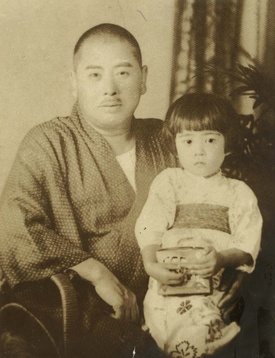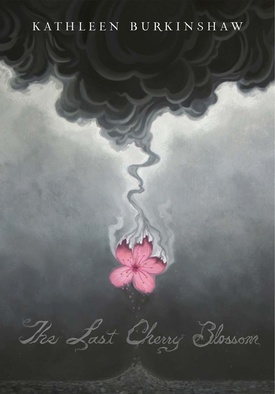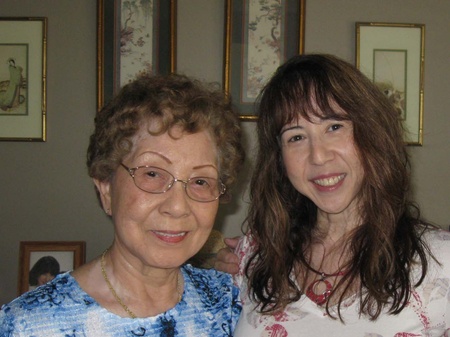Someday, the voices of the hibakusha will no longer be with us to bear witness. But the memory of the morning of August 6, 1945, must never fade. That memory allows us to fight complacency. It fuels our moral imagination. It allows us to change.
President Obama said these historic words standing in front of the cenotaph in Hiroshima Peace Memorial Park on May 27, 2016. As the daughter of a hibakusha, I was grateful that the President paid respect to the victims who died that day, to those who lived, and continue to live being victims to their memories of August 6th.
My mother, Toshiko Ishikawa, was a 12-year-old girl in Hiroshima the day the atomic bomb was dropped. She was young enough to not quite grasp why it happened, yet old enough to never forget what happened.
My mother met and married my father (an American) while he was in the Air Force stationed near Tokyo. She moved to the USA with him in 1959, became a US citizen a few years later, and ended up working on the circuit boards for Apollo 11. It wasn’t easy for her when she first came to the U.S. because there were still feelings of prejudice against the Japanese. My mom always said that war is hellish on both sides and she did not hold hatred. Instead, she hoped that such a weapon would never be used again on any country.
I have presented her experience to middle schools for the past seven years so more students would understand there’s more to August sixth and ninth than the textbook picture of the mushroom cloud with a few sentences stating the bomb ended the war. By telling her story to a new generation of future voters, I hope I am honoring her wish and making her proud.
I wrote my middle grade historical fiction, The Last Cherry Blossom (Sky Pony Press) when teachers inquired if I had a book to complement my discussion that they could add to their class reading list. The Last Cherry Blossom published on August 2, 2016 and was a bittersweet time. My mom had passed away in January 2015, but she did read the latest manuscript draft (at that time), and knew it would be published. I’ll never forget how amazed she was that people would want to read her story. I can only imagine how shocked she’d be to know that it has been read in classrooms all around the world over this past year! Yes, Mom, your story mattered. ❤
I wanted to write this book not just to honor my mother and her family, but to honor all the people that suffered or died from the effects of pika don. We need to remember the immense destruction a nuclear weapon produced in the past. Not for blame, but to realize how much worse the damage could be today and how many more innocent lives would be lost.
My mom’s wish was, and my hope is, not only to convey the message that nuclear weapons should never be used again; but to also reveal that the children in Japan had the same love for family, fear of what could happen to them, and hopes for peace as the Allied children had. I want the students to walk away knowing that the ones we may think are our “enemy” are not always so different from ourselves. I feel this message needs to be heard today now more than ever.
Recently, the historic Nuclear Weapons Ban treaty was signed at the United Nations in NYC. Despite the fact that the United States, plus eight other countries that possess nuclear arms neither attended nor voted (and surprisingly, even Japan, the only country to have experienced the atomic bomb did not attend); I believe it is the first (of many) steps toward nuclear disarmament. To continue moving forward, we need to realize that the people under those “famous mushroom clouds” in August, were someone’s mother, father, sister, brother, or child.
Originally, scientists said nothing would grow again in Hiroshima for many years after the bomb was dropped. Yet the cherry blossoms bloomed again the following spring. The cherry blossoms endured much like the spirit of the people affected by the bombing in Hiroshima.
Two years ago, my family and I visited Hiroshima to honor my mother at the Hiroshima National Peace Memorial Hall for the Atomic Bomb Victims. Standing on the same ground where she experienced so much horror and destruction at the age of twelve-years-old, broke my heart.
It cemented my feeling that my mother was the bravest person I’ll ever know. She lost so much that fateful day, yet she gained an inner strength she never thought possible. The love she had given my daughter and I, proved that love prevails over fear.
© 2017 Kathleen Burkinshaw





